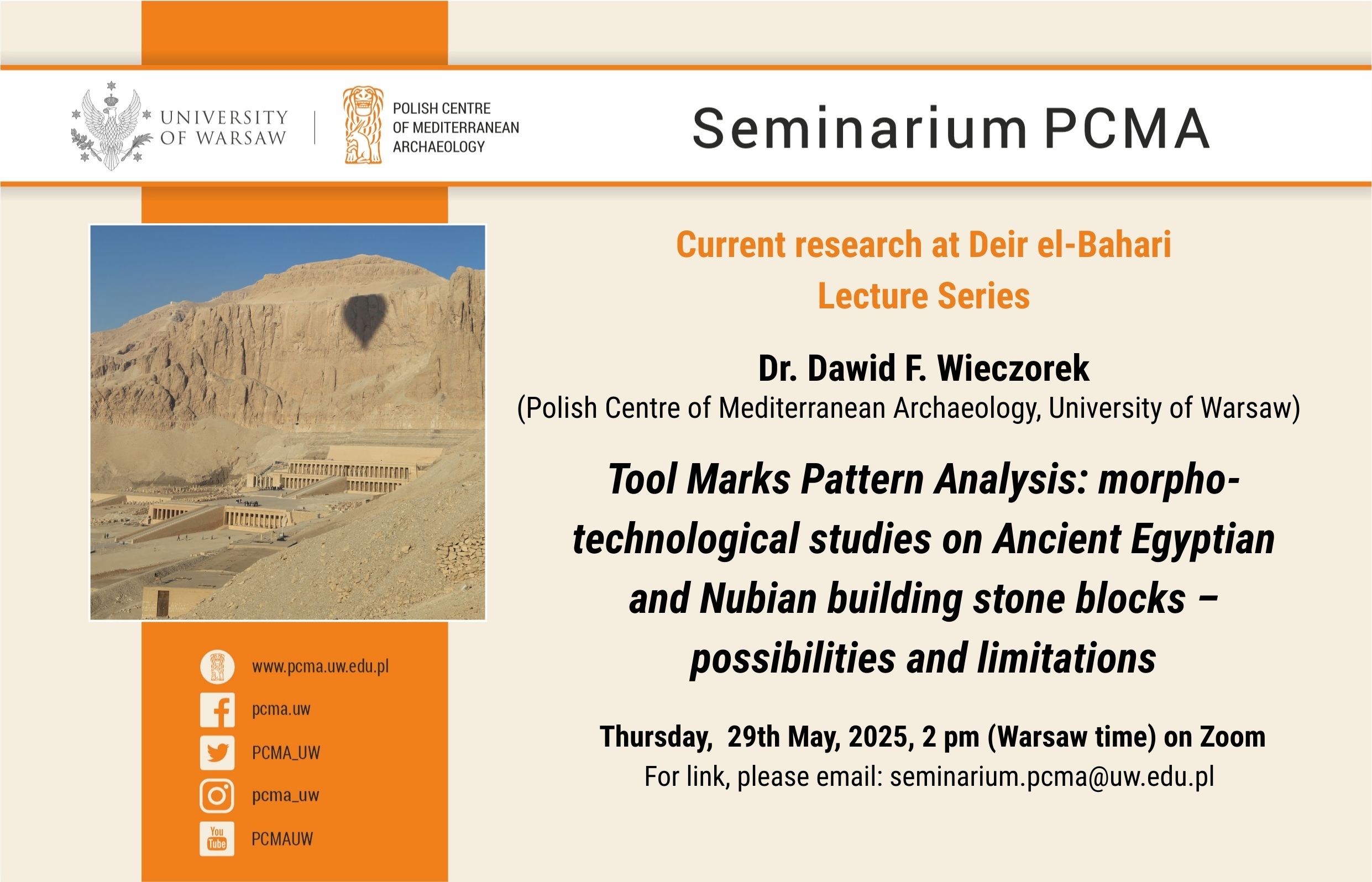Na kolejnym seminarium PCMA wystąpi dr Dawid F. Wieczorek (CAŚ UW) z tematem: „Tool Marks Pattern Analysis: morpho-technological studies on Ancient Egyptian and Nubian building stone blocks – possibilities and limitations”.
Abstrakt:Once the Tool Marks Pattern Analysis (TMPA) was developed to stratify epigraphic material, i.e. building dipinti uncovered in the temple complexes of Hatshepsut and Thutmose III at Deir el-Bahari from the early 18th Dynasty of the New Kingdom (c. 1479–1425 BCE), it became evident that while developing a new method for relative dating, a new approach was simultaneously developed for the morpho-technological studies of building stoneblocks.
As a result, it became possible not only to study the epigraphic material but, more importantly, the stone material itself, which ultimately makes this method universal. As demonstrated by the technological research conducted on the stone material at Deir el-Bahari, this method, in addition to providing a basic morpho-technological description, also allows for the reconstruction of the complete technological production process for a specific group of building stoneblocks. Thus, it seems that the TMPA method may have much broader research potential, and its universal assumptions allow it to be applied to building stone material found at other archaeological sites as well.
Seminarium odbędzie się w czwartek 29 maja o godz. 14.00 na platformie Zoom.
Cały cykl dostępny jest pod tym samym linkiem Zoom. Aby go otrzymać, prosimy pisać na adres: seminarium.pcma@uw.edu.pl
Świątynia Hatszepsut w Deir el-Bahari jest uważana za jeden z najważniejszych zabytków starożytnej architektury egipskiej. Od 1961 roku świątynia jest przedmiotem badań i prac konserwatorskich polsko-egipskiej ekspedycji z Centrum Archeologii Śródziemnomorskiej Uniwersytetu Warszawskiego.
W ramach tego cyklu wykładów na Seminariach PCMA członkowie polsko-egipskiej ekspedycji zaprezentują wyniki najnowszych badań terenowych i studiów, koncentrując się na wykopaliskach archeologicznych, badaniach epigraficznych oraz pracach restauratorskich i konserwatorskich.
Organizatorem wydarzenia jest dr Patryk Chudzik z Zakładu Archeologii Egiptu CAŚ UW. Wykłady z tego cyklu obejmują tematy związane z najnowszymi badaniami Polsko-Egipskiej Ekspedycji Archeologiczno-Konserwatorskiej w Świątyni Hatszepsut w Deir el-Bahari.


